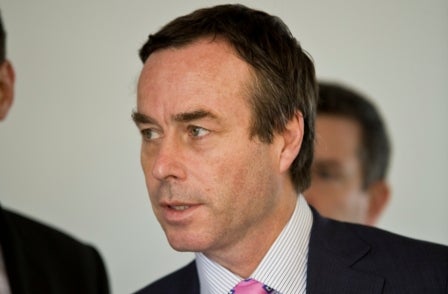
FT editor Lionel Barber asked last night whether media giants like Facebook could end up owning the news industry without paying a penny for it.
Speaking at the London School of Economics he noted that social media now sends 36 per cent of traffic to news websites, compared with 41 per cent for Google.
He said: “Traffic diversion on this scale poses a dilemma for publishers. The big beasts in tech, and they are very big. say they have no interest in investing in content. The reality is that they have no need to if they create go-to platforms for publishers’ content.
“Take Facebook’s newly announced Notify App or Apple’s News App. Together they represent exciting opportunities for publishers to connect with a wider audience. They can help us to expand reach exponentially.
“On the other hand, if mishandled, these new platforms present a route to disintermediation, to surrendering the direct relationship with readers which lies at the heart of the FT’s pay-for-content subscription model. Indeed, all subscription business models.”
And he asked “…is it a stretch to predict the tech titans will own the media without ever having to pay for the message.”
As the FT faces the threat of strike action over cuts to staff pensions prompted by the title's acquisition by Nikkei, Barber spoke out in favour of his new bosses. Nikei's £844m take-over of the Financial Times Group is set to be completed this month.
Barber said: “There’s been plenty of speculation about what the FT-Nikkei deal portends. I say this: New owners, new partners, same FT.
“The FT remains committed to the gold standard of journalistic excellence.
“We will continue to report without fear and without favour.
"And we will continue to be an industry pioneer, blazing trails where others fear to tread.
“Nikkei paid 40 times earnings for the Financial Times. Why?
“In two words: brand matters.
“Last word on the FT-Nikkei deal, for now: I believe that in a world of nimble, deep-pocketed, tech-savvy rivals, we are stronger together than apart.”
Barber also defended his publication’s decision not to sign up to press industry regulator the Independent Press Standards Organisation and instead regulate itself.
He said: “Last year, after much debate in the wake of the Leveson inquiry, the FT chose, for now, not to join IPSO, the new industry body set up to replace the Press Complaints Commission.
“Instead, we created the new post of editorial complaints commissioner reporting to an independent panel including our CEO John Ridding and two former Fleet Street editors, Baroness Wheatcroft and Ian Hargreaves.
“The appointment of Greg Callus, an experienced barrister — created a new locus of authority in the newsroom, albeit strictly in the appellate role.
“Earlier this evening I spoke of our commitment to the gold standard in journalism. The appointment of an independent editorial complaints commissioner demonstrates just that. It underlines the value of fresh thinking, of avoiding being trapped by dogma.”
Email pged@pressgazette.co.uk to point out mistakes, provide story tips or send in a letter for publication on our "Letters Page" blog
